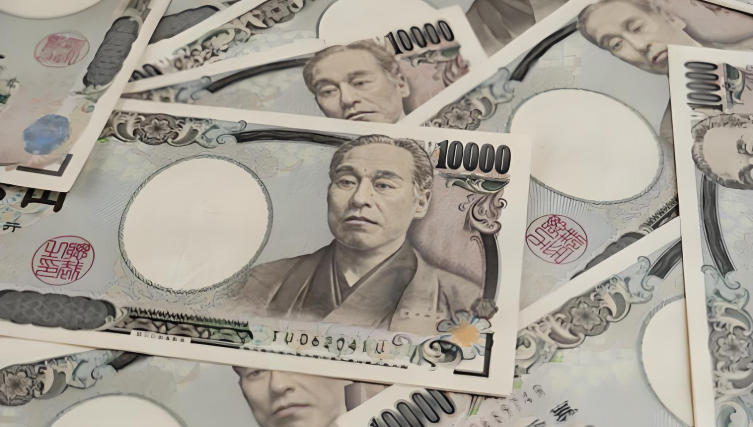Growing Bets on Yen Options
Advertisements
The landscape of Japan's economy is witnessing a notable transformation, marked by the assertive remarks of Governor Kazuo Ueda of the Bank of Japan (BoJ) regarding the volatility in the government bond market. In a recent parliamentary session, Ueda emphasized the central bank's readiness to intervene in response to skyrocketing bond yields, reiterating a commitment to stabilizing the financial environment. This statement underscores a pivotal moment in Japan's monetary policy, as the nation grapples with rising inflation and the implications it holds for its economy.
During his address, Ueda faced challenging questions regarding the increasing fluctuations in bond yields. He responded by highlighting the unusual circumstances that have caused long-term yields to surge, stating, "The fluctuations in bond yields have reached a certain level." Ueda affirmed that, in light of the drastic rises in yield, the BoJ would flexibly purchase government bonds to foster stability in this critical sector. Following his remarks, there was a notable decline in Japanese bond yields, alongside a soften in the yen's value.
The Japanese economy is currently grappling with inflationary pressures not seen in years. Recent data revealed that the core consumer price index (CPI) for January surged to its highest level since June 2023, surpassing market expectations. Including fresh food, the overall CPI escalated to 4%, a two-year high, while the core measure excluding energy rose to 2.5%. This rising inflation is alarming as it indicates that price pressures are extending from energy sectors into broader economic segments. The spike in bond yields, reaching a new peak not seen in 15 years, reflects market anxiety over these developments.

Market analysts, such as Christopher Wong from OCBC Bank in Singapore, are closely monitoring Ueda’s hints regarding future actions. With the potential for yield instability, Wong remarked, “The market is looking for Ueda's cues on the recent rise of Japanese government bond yields. His indication of purchasing bonds during periods of high yield volatility signals that the BoJ is keeping a vigilant eye on the market.” The importance of maintaining stability in bond yields cannot be overstated, particularly in a market that has seen fluctuations provoke significant reactions from investors.
Historically, the BoJ has signaled that it would engage in bond purchases should there be sharp increases in yields. During discussions with Prime Minister Shigeru Ishiba, Ueda delved into concerns surrounding this rise, highlighting the interconnectedness of fiscal and monetary policy in addressing economic stability.
A key takeaway from Ueda's statements is the acknowledgment of the side effects stemming from the BoJ's historically expansive monetary stimulus measures. As Japan's economic outlook shows signs of improvement, the prospect of interest rate hikes becomes more plausible. Ueda remarked, "If price expectations continue to improve, there could be more rate hikes in the future, and this may have unpredictable impacts on the economy." This balancing act poses a significant challenge for the central bank.
The response to the recent economic developments has also invited speculation among hedge funds, which have reignited their bullish bets on the yen's performance against other major currencies. Following a tumultuous trading week in which positions on the yen were put to the test, macro hedge funds have returned to betting on the yen's strength. They have purchased a series of call options on the yen against currencies such as the U.S. dollar, euro, and Swiss franc. The volume of call options for the yen versus the dollar has reached seven times that of put options as of Friday morning, illustrating a shift in investor sentiment.
As of February 20, all nominal transactions exceeding $200 million for the dollar-yen pair traded via custodian trust and clearing companies had strike prices at or below 150. This indicates a strategic positioning in anticipation of the yen's strengthening against the dollar, which speaks to broader market sentiment.
Graham Smallshaw, a senior forex spot trader at Nomura in Singapore, shared insights on the evolving forex market dynamics. He noted a clear retreat from bearish positions on the dollar-yen pair, especially after February 14, when the market surpassed the 200-day moving average. This trend suggests a renewed confidence among traders, albeit at a conservative scale compared to previous selling activities. Furthermore, there are observable movements where funds actively pursue positions to buy yen in relation to other currencies, reflecting a significant shift in market expectations.
With Ueda's comments guiding traders’ expectations towards potential interest rate hikes in the future, Ivan Stamenovic, head of G10 foreign exchange trading at Bank of America for the Asia-Pacific region, remarked on the noticeable changes observed in the market dynamics during Asian trading hours. As investors swiftly moved into new bullish positions for the yen, sentiments reflected a growing confidence in Japan’s economic trajectory.
The implications of Japan's inflation rate, which has surged to a two-year high, provide compelling reasons for the BoJ to consider further interest rate adjustments this year. Pricing in the swaps market currently suggests an 84% likelihood of the central bank hiking rates by 25 basis points by the end of July, with a 100% chance of a rise by the end of September. This evaluation highlights the critical period Japan is entering as it navigates the path of economic recovery amidst inflationary pressures.
Smallshaw commented on the tough test that bullish yen trades faced last week, particularly as the dollar-yen pair pressed down to 154.80. He mentioned that many of the short positions in dollar-yen and other yen crosses were eliminated during this volatility; however, he still sees the option structure remaining intact. Overall, the situation in the Japanese economy encapsulates an intricate dance of policy measures, market reactions, and the larger global economic context, suggesting that the coming months will be crucial for Japan’s economic strategy and its implications on financial markets.